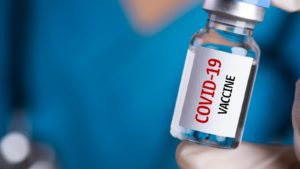World Bank spends $2b financing COVID-19 vaccine rollout
 The World Bank says it has spent $2 billion in financing the purchase and distribution of COVID-19 vaccines for 17 developing countries. This is part of the $12 billion issued over 24 months for developing countries to acquire and deploy vaccines and strengthen their vaccination systems.
The World Bank says it has spent $2 billion in financing the purchase and distribution of COVID-19 vaccines for 17 developing countries. This is part of the $12 billion issued over 24 months for developing countries to acquire and deploy vaccines and strengthen their vaccination systems.
The $2 billion funding is supporting COVID-19 vaccination in Afghanistan, Bangladesh, Cabo Verde, Cote d’Ivoire, Ecuador, El Salvador, Eswatini, Ethiopia, The Gambia, Honduras, Lebanon, Mongolia, Nepal, Philippines, Rwanda, Tajikistan, and Tunisia.
By mid-year, the Bank expects to support 50 countries with $4 billion financing for COVID-19 vaccines. Financing for the poorest countries, however, is on grant or highly concessional terms.
David Malpass, World Bank Group President, says access to vaccines is key to altering the course of the pandemic and helping countries move toward a resilient recovery.
“Our programmes are helping developing countries respond to the health emergency and have financing available for vaccines. As the world attempts to carry out the largest vaccination effort in history, we have stressed the need for countries with excess vaccine supplies to release them as soon as possible, and for financing commitments to COVAX to be encashed,” he said.
According to the World Bank, its vaccine finance package is designed to be flexible. It can be used by countries to procure doses through COVAX or other sources. It can also finance other key deployment and health system strengthening activities, such as medical supplies, personal protective equipment, vaccine cold-chains, training health workers, data and information systems and communications and outreach campaigns to key stakeholders which are key to ensure vaccination acceptance.
The Bank has aligned its eligibility criteria of COVID-19 vaccines with the revised eligibility criteria of COVAX and other multilateral partners.
Also, the International Finance Corporation (IFC), the Bank’s private sector development arm has a $4 billion health platform to increase the supply and local production of personal protective equipment in developing countries and unlock medical supply bottlenecks in emerging markets, particularly in medical equipment and vaccines.
The Bank says it is working with governments and partners (UNICEF, the Global Fund, WHO, and GAVI) to assess the readiness of over 140 developing countries to deploy vaccines.
“We are working together with the international community and partners to accelerate the rollout of COVID-19 vaccines. Vaccines are a key element in how we return to school, to work, and to grow,” Axel van Trotsenburg, World Bank Managing Director of Operations said.
He noted that to get a vaccine into someone’s arm, there is a whole system of interdependent actions that needs to function properly. Even though 85 per cent of countries have developed national vaccination plans, only 30 per cent have plans to train the number of vaccinators needed and 27 per cent have put public engagement strategies in place to address vaccine hesitancy.
So far, the World Bank Group has approved $108.6 billion to help countries fight the health, economic and social consequences of the pandemic. The Bank is assisting over 100 countries with COVID-19 health emergency projects reaching 70 per cent of the world population.
By Theodora Aidoo
Copyright ©2021 by NewsBridge Africa
All rights reserved. This article or any portion thereof may not be reproduced or used in any manner whatsoever without the express written permission of the publisher except for the use of brief quotations in reviews.
